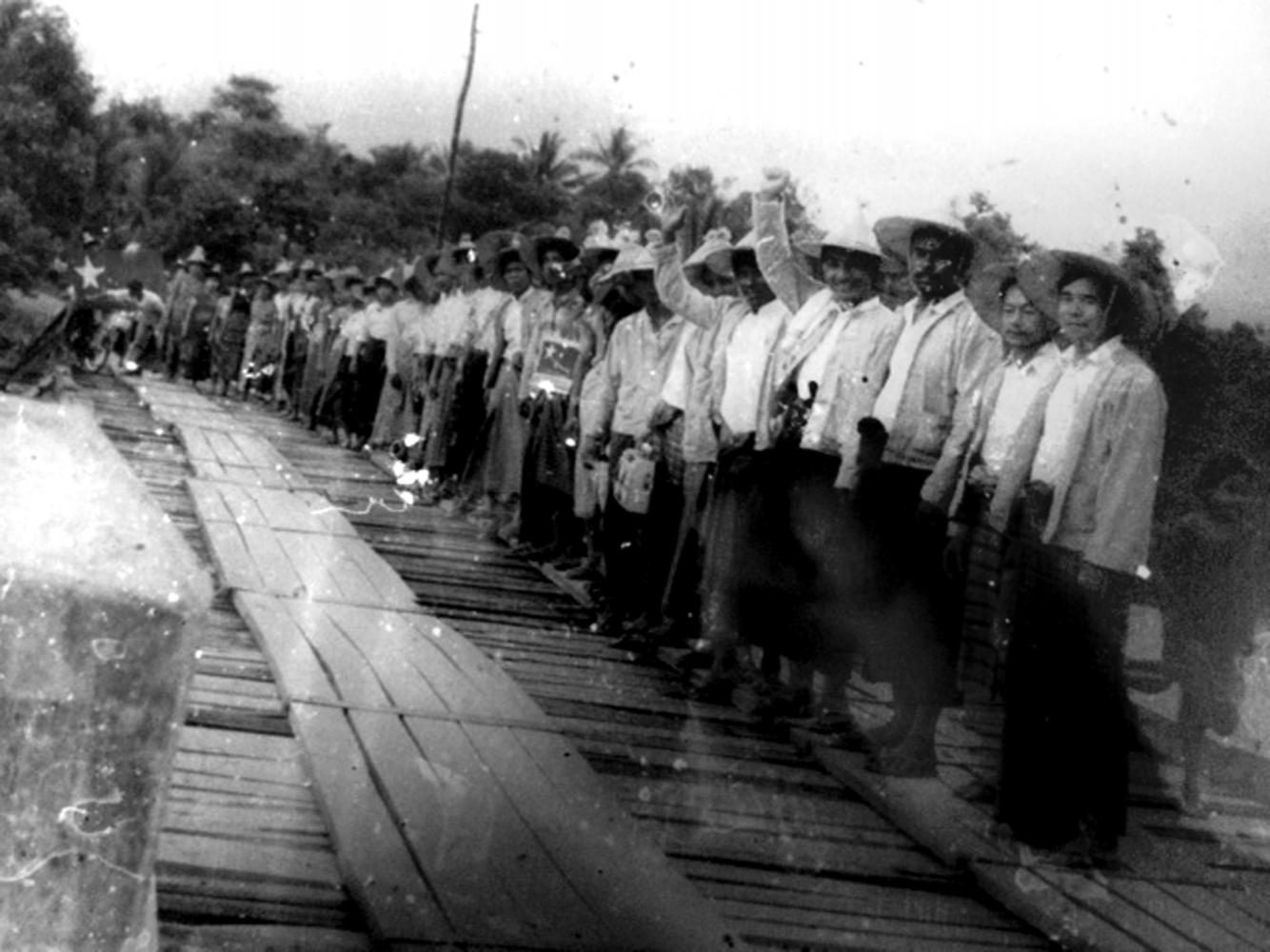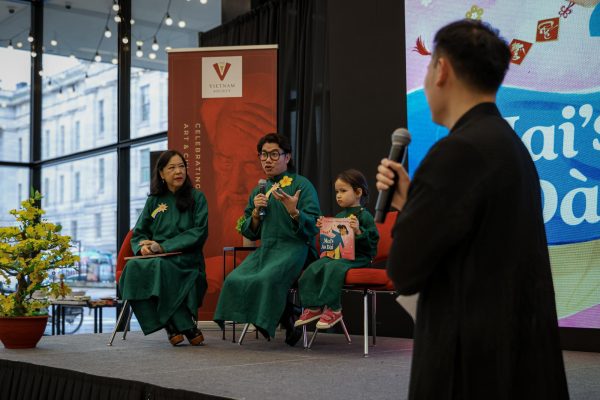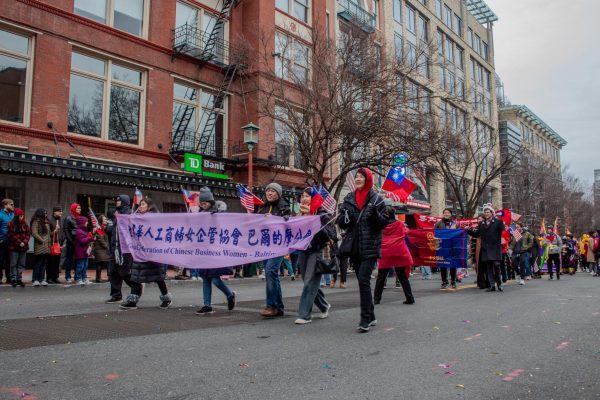Out of Asia, Into the District
Min sits next to me on a bench outside a restaurant in Dupont one afternoon. She’s wearing her real estate company’s sweatshirt and jeans. She is calm, and good-natured, and as she sits and tells me the story of her childhood, I wonder how she can be.
“I knew I grew up in the jungle,” she says. “Then we went into Thailand, but the military still chased us. Out of nowhere, just shooting. You didn’t cry for your mom or dad, you just laid on the ground.”
Min spent her childhood on the run, moving from refugee camp to refugee camp in Northern Thailand. Her father, a prominent general in the Burmese military, “wanted to fight for what was fair. He got involved in the National League for Democracy, which put [their] family in jeopardy.”
The National League for Democracy, or NLD, was formed in 1988 after the 8888 Uprising, a revolt lead by students in Rangoon to protest the extremely detrimental Burmese Way to Socialism ideology which had left Burma one of the most backwards countries in the world. It was during this time that Daw Aung San Suu Kyi started to become recognized as a national icon for leading the NLD, her pro-democracy political party. Two years later, the party won 80% of the seats in the Burmese Parliament, but this progress towards Burma’s right for freedom and democracy was quashed by the military. In 1990, Min’s family fled the county, and Daw Suu Kyi was placed under house arrest. She wouldn’t be released until 2010.
American University has long been affiliated with the struggle in Burma. “In fact, AU was involved long before Daw Aung San Suu Kyi was known on the world stage, and it’s not inaccurate to say that AU played a role in placing her there,” says Christine Gettings, who helped coordinate Daw Suu Kyi’s visit to American in September. “Many student activists involved in the Burma movement were AU students and AU alumni have founded non-profit organizations working on Burma advocacy, education, and human rights both here and in Thailand.” Indeed, four American University student activists were arrested inside Burma in 1988 for distributing pro-democracy literature.
Daw Suu Kyi’s visit to American University in September is far more significant than many outside of the community realize. Hundreds of native Burmese flocked to Bender Arena to hear their matriarch, The Lady, speak in person on her first trip to the United States in 40 years. The speech was made almost entirely in Burmese.
The importance of her language choice was not obvious until I began meeting attendees outside Bender Arena that morning. Most people donned traditional Burmese longyi, but more importantly, many of the elders did not speak English. Although a majority of the attendees were either American citizens or had lived in the country as long as Min, almost 20 years, language still connected them to their courageous leader and, in turn, to their home.
“The speech was a mother’s love; she came to see us,” says Min. “It wasn’t pressuring or promising, but it was very motivating. It brought me to think to bring my Burmese heritage out more. When you’re in this country, you respect this country, but you don’t forget your home.”
But Min explains her complicated adolescence is related to her struggle with her Burmese identity. “I used to write about my experiences in Burma in middle school,” she says. “I wanted to write a book for my children. But American culture, you have to act a certain way, dress a certain way. I was a teenager without a culture. I began acting out, and even though I still wanted to please my parents, they thought I was a bad child.”
Min says although she lives here in the U.S., she still strongly identifies as Burmese. And through Min’s parents and siblings have all chosen to become American citizens, she has not.
“I want to go back,” she says. “I want to take my kids; I can’t teach my kids about the culture properly. My husband isn’t Burmese, so we don’t speak it at home.”
While some Burmese Refugees want to return, others worry about their family still living in Burma.
“From where I stand, many are concerned about their families back home in Burma and access to education, economic opportunity, and political freedom,” added Gettings.
After Daw Suu Kyi’s speech there was an opportunity to ask questions, many of which pertained to citizenship and potential dual citizenship. Daw Suu Kyi explained that it is a common law for countries to not allow for dual citizenship, explaining that it was “the law of the land.” But the question was asked so many times, it was hard to ignore the plea from the young Burmese to take back their stolen identities. There was a cry for stabilization not just for the sake of the Burmese within the country, but all over the diaspora, praying to return to their families and culture in Burma.
For many, the problem lies within the Burmese Embassy. For some of Min’s family members, taking on a new name and getting American citizenship also meant access to an American visa and access into Burma. Min is not so lucky, and is unable to attain a visa to visit her own country due to fear surrounding the Embassy and that she will be sought after by the military.
“I am a little afraid of the Embassy,” Min says. “I’m always the one outside with a sign protesting, and I don’t know what pictures they have of me. They know who I am.”
The recent Burmese elections have left the world stunned and awed. Not only was it a quiet election, but the NLD party also won a large portion of the empty seats in Parliament. This led to a lessening of sanctions by many Western countries, including the United States. And although the majority of the pro-democracy supporters around the world view this as a giant leap, many at the speech last month asked questions about how much they can trust the NLD without Daw Suu Kyi.
“Every time I see her, I think, ‘What would happen if something happened to her?’” Min says. “When she stepped off the stage, she had to have someone walk her. She is getting older.” Many of the questions reflected the diaspora’s general exasperation with a Daw Suu Kyi-less government. “The world has acknowledged the struggle and horror in Burma. Because of that acknowledgement, I feel confident that if something happened to her, as long as we have the NLD, I’m OK.”
However, not all Burmese-Americans are so convinced the country will make the turnaround that they’ve demanded.
Jane, a Burmese-American, runs the ever-popular restaurant Burma in Chinatown. “If they’re thinking of going back, maybe they have never been before,” Jane says. “If I get robbed in America, I call the police. If I get robbed in Burma, who do I call? I don’t know why anyone would give up living like an American to live in Burma. You have opportunities here; in Burma, there are no factories, no jobs.” Jane’s son goes to university in America, and she says she has no intention of returning.
The restaurant also hosts meetings of the US Campaign for Burma, a group that advocates and fights for Burma’s freedom, once a month. “There used to be more people at the meetings, but now there are only a few. People have their own jobs and families to take care of.”
But for many, the desire to return is strong. Min says once her husband is working again, they will save the money for her to move back with her children. Even after admitting to having posttraumatic stress disorder directly related to her time in Burma, she still has every intention of returning.
“I appreciate the Buddhist culture,” she says. “It’s respectful, and I want to get in touch with my roots. I saw monks walking and praying at the speech, and that hit home to me.” As for now, she waits as her sister, an American citizen, travels in Burma, and contemplates her decision to not become a citizen. But her attachment to her culture is so intense, that to surrender her citizenship “would be like giving up all [her] rights.”
Generally, the diaspora has a hopeful outlook for Burma. The community watches eagerly, but with skepticism, to see the next move for Daw Aung San Suu Kyi and the National League for Democracy. The Burmese-Americans in DC will continue to monitor the developments back in their home country, but until a drastic change, they wait.
Photo courtesy of Min.











